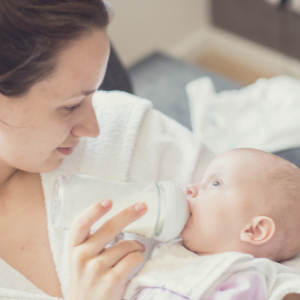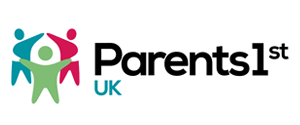How to feed your baby is without doubt one of the most important issues you face as a parent. It can be a highly emotive issue that can often trigger feelings of guilt or regret.
As a parent you must choose to breast feed, bottle feed or combination feed. But how do you choose? And what if this choice is taken out of your control?

The “Breast is best” message is loud and clear from healthcare professionals but the downside of this is that a woman may end up feeling ashamed about wanting to or needing to bottle feed and the impact on her mental health may be profound. Infant feeding can play an enormous part in both supporting and exacerbating emotional wellbeing.
We know from the last Infant Feeding Survey that over 80% of mothers in the UK initiated breastfeeding. However, we also know that by 6 months, the rate of exclusively breast-fed babies dropped to just 1%.
When women who want to breastfeed struggle to succeed or stop before they originally intended to, they can experience a range of strong emotions, from frustration to anger and grief. This form of trauma can stay with them for many years. Research has shown that the lowest risk of postpartum depression was found among women who had planned and had gone on to breastfeed their babies successfully, while the highest risk was found among women who had planned but had not gone on to breastfeed.

The process of establishing breastfeeding may lead to stress and anxiety for some women, especially if they lack access to skilled breastfeeding support in the early days. Conflicting advice is common, and they may struggle with discomfort, pain or mastitis. The need for frequent night-time feeds can feel overwhelming and exhausting. Anxiety can impact on release of breast milk enabling hormones. Many women change to bottle or combination feeding at this point but without emotional support they can be left with feelings of regret or guilt, worrying if they have failed from the beginning.
Whatever path a mother takes, she should be supported and respected. A safe and reassuring place for positive conversations to take place is vital. Mothers need to be listened to, their feelings acknowledged, and practical, skilled support given at the right time (either with breast or bottle) to nurture emotional wellbeing and to feel proud to parent with confidence.
So, where does peer support come in?
Women should be able to get the support that they need when they need it, and feel listened to and not judged. Peer supporters, with the right personal qualities, are trained to do just this. An informal, non-judgemental listening ear, and support to navigate further help when needed, can make all the difference. Peer supporters are in your corner, whatever your parenting journey.
Peer supporters encourage pregnant women and expectant fathers or partners to chat through issues that are important to them. Many of these issues may seem unrelated to infant feeding but nevertheless impact on their decision-making. Through quality peer support, parents can feel supported, talk about their feelings and be better prepared and informed for when baby arrives.
Peer supporters can also help mums practically, whether that is with supporting mums to get breastfeeding established or making up a formula feed correctly and safely.
Trusting relationships are at the heart of quality peer support. Such relationships can be a lifeline to lonely, isolated mothers. Peer supporters work hard to build these relationships which provide a bedrock for nurturing emotional wellbeing.
If things don’t go to plan, peer supporters can help mum and baby to navigate issues and support her both practically and emotionally throughout their feeding journey, respecting parents’ decisions and listening and signposting to additional support if needed.

